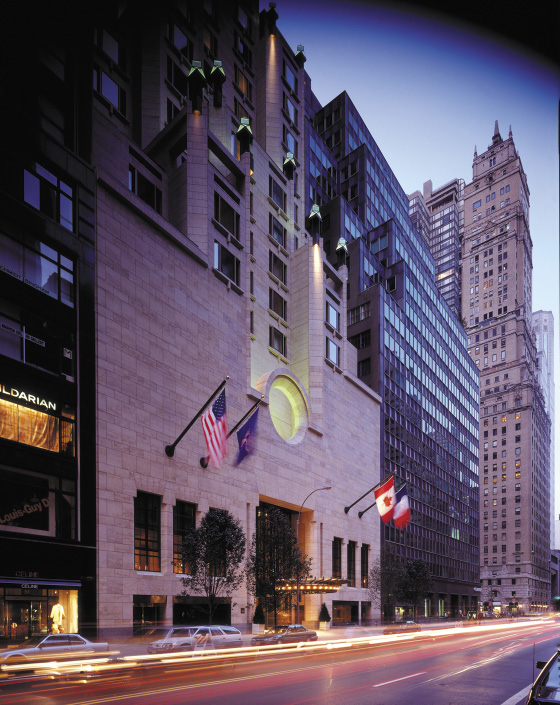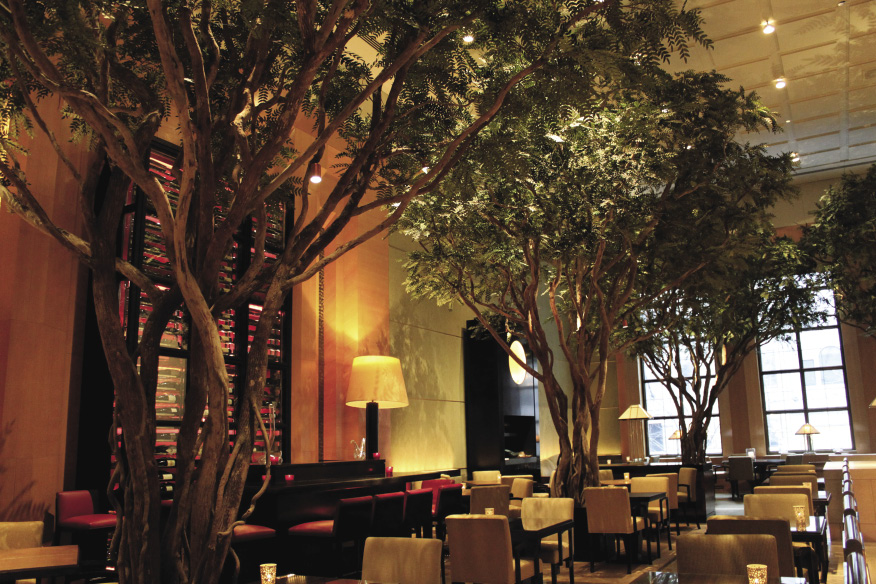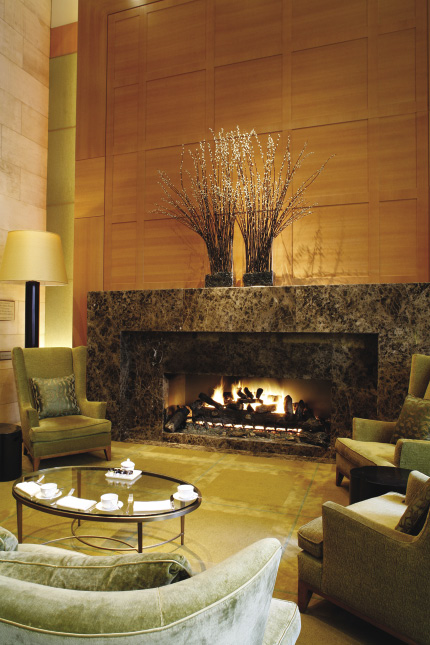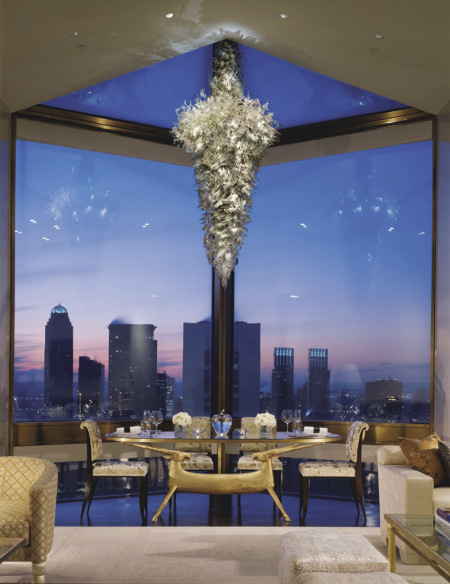- Home
- Media Kit
- Current Issue
- Past Issues
- Ad Specs-Submission
- Ad Print Settings
- Reprints (PDF)
- Photo Specifications (PDF)
- Contact Us

![]()
ONLINE

Staying on Top of the Game
Editors’ Note
Before assuming his current post, Christoph Schmidinger served as the General Manager of The Ritz-Carlton Chicago, a Four Seasons Hotel. Prior to this, he served as General Manager of Four Seasons Hotel Atlanta and for eight years in managerial positions at the parent company and Regent International properties in Asia. In his current role, he oversees Four Seasons Hotels in Atlanta, Boston, New York, and Philadelphia.
Property Brief
The I. M. Pei-designed Four Seasons Hotel New York (www.fourseasons.com/newyorkfs) is a Forbes Five Star, AAA Five Diamond property and the tallest hotel building in New York, known for its 368 oversized guest rooms – among New York’s largest – and similarly spacious bathrooms, all completely remodeled in 2004. The hotel’s property upgrades in recent years include the newly created Presidential Suites; a redesigned spa and fitness center;and the addition of TY Lounge and The Garden Restaurant. Recently, L’Atelier de Joël Robuchon received its second Michelin Star and the hotel features the world’s most expensive hotel suite, the $35,000-a-night Ty Warner Penthouse Suite. The hotel is managed by Toronto-based Four Seasons Hotels and Resorts.

Four Seasons New York entrance
What makes a hotel a consistent leader and what are the characteristics today of a great hotel?
First of all, you need to get the basics right, so the expectation level of the customer is met, in terms of the basic services. You don’t have to worry about check-in time/check-out time; if the room is in good condition; if the service is more or less there – this is a given with the prices you charge; there is an expectation level.
It’s the same as if you went to a luxury retail product dealer and you’re willing to pay a premium for a certain item; you expect that particular product – the hardware – to be right. The same applies to a hotel.
What makes the difference with a hotel, as with a retail product, is how you get the product across to the customer in terms of the service, the software. That is where it never stops; you are always under pressure to keep that level up.

The Garden Restaurant
If you start to believe that you’ve made it and you’ve got the service where it needs to be, and then sit back to rest and enjoy it, that is the beginning of failure. You are never at liberty to scale back those efforts.
Everyone refers to consistent service standards, but not until you live it day-to-day do you see who really has it. It starts with training, but how do you continue to reinforce it and how do you assess whether you’re losing it?
I wish I could tell you everything goes perfectly every single day – it doesn’t. You just have to work on it. It starts with my setting a good example. Leadership sets the tone for it and it’s contagious. All of your managers and line staff eventually pull in the same direction. But you have to keep an eye on it all the time. You can never take your eye off of it because the customer always has the same or higher expectations, and is not willing to make compromises if he’s paying our rates.

Lobby lounge
You have many customers who stay in Four Seasons elsewhere. Is that because of the Four Seasons brand or do you find that the customers evaluate the hotels individually?
We absolutely have standards that are applicable to all Four Seasons around the world. The Four Seasons’ customer who stays in any of our properties expects a similar level of service in everything we do.
But what you try to do is give it a local feel. You cannot serve a customer in New York the same way as you serve a customer in Thailand or Bali. It’s different and the customer expects it to be different. The customer does not want to be dealt with the same way when he is on vacation in Bali as he is dealt with when he is in New York on business.
My customer is primarily a business customer, although on the weekends, it’s a leisure customer. You have to be able to make a switch. You have a different customer from Monday to Friday than you have from Friday to Monday, and you have to switch your way of delivering the service and your attention to the guest. One way to stay fresh and on top of the game is to remain focused on the customer. I call this being guest-centric or customer-centric.

Night view from the Presidential Suite
If you think about what the customer expects – be it a business traveler, a leisure traveler, a family with children, or a meeting customer – as long as you try to understand the needs of the customer, then you’ve already made a good start.
So before the customer comes to your hotel, you try to establish a relationship and find out the purpose of the visit. Then you try to adjust to it in terms of the service delivery.
It’s not always easy because on a busy day, I have 600 to 700 guests staying with me. Can I make an impact on all of them? No. But you try to contact as many as you can.
We have a guest relations and special services team of five people and they do nothing but prepare for the customer’s stay and hold hands with the customer while he’s in house, coaching him through his stay. This is an important part of our customer-centric approach.

Ty Warner Penthouse Suite dining area
Do you think your market appreciates that value is not necessarily price oriented but experience oriented? How do you get the message across that you can pay a high rate but get more value?
The customer today rates the software around the product more than the product itself, because that’s what makes the difference. The bed must be right, the TV must be right, the shower must be right, and the room should be okay, but how you deliver it makes the difference.
You also touched on the issue of innovation. We have a lot of return customers who are very loyal to us. How do you keep them interested in your product and adjust the ever-changing expectations of a customer? The customer who was greeted here for the first time 19 years ago when the hotel opened has a different expectation level today. How do you adjust to that and cope with innovation in order to continue to remain relevant? We want to provide relevant service and a relevant product, and that always changes.
Globally, this hotel has received so much positive feedback and is known as an iconic property in New York. Is it tough to guard against complacency? How do you continue to improve when you’re already on top?
It’s a challenge. You need to always be on fire and alert – you never want to be surprised by a curve ball. You have to be in the game and focused until the game is over, which is never – you have no time to relax; it’s absolutely a danger.
Many enter this business because of the people and relationships. Is time spent with guests in the lobby gone?
I wouldn’t say it’s gone – it’s different. The first time I worked as a general manager more than 20 years ago, the focus was on different areas. But you learn as you go and grow with it; you face reality – this is how it’s going to be.
You have a choice: you either accept it and adjust to it or, if you can’t live with the change, you look for something else. This is the way our business is done today and we have investors who expect some return on investment, so you need to stay focused on it and deliver.•